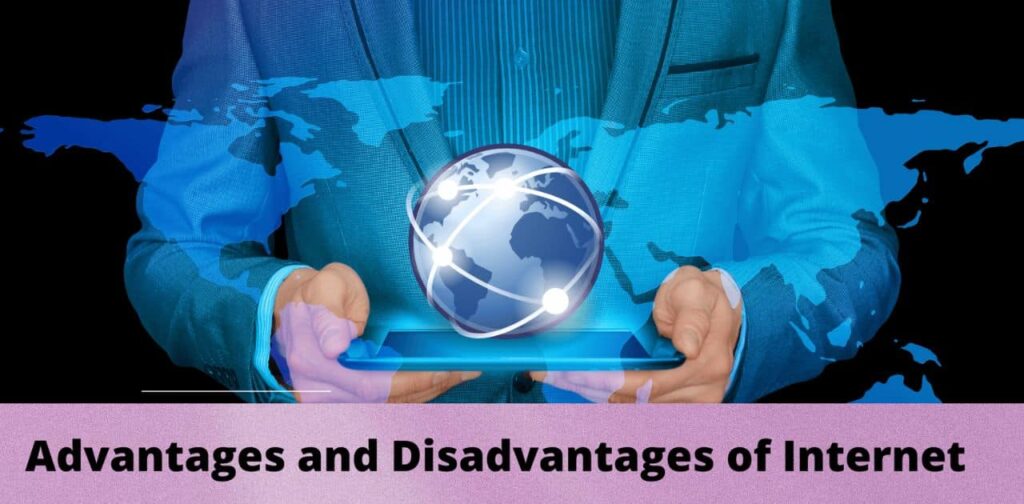The internet has become an integral part of our daily existence, reshaping how we communicate, learn, work, and entertain ourselves. In this comprehensive exploration, we delve into the profound impact of the internet on various aspects of our lives, unveiling both the positive and negative consequences of this technological revolution.
Communication
The internet has revolutionized the way we communicate, breaking down geographical barriers and connecting people across the globe. Instant messaging, video calls, and social media platforms have become commonplace, facilitating real-time interaction and fostering a sense of global community. In the realm of business, the Internet has transformed professional communication, enabling seamless collaboration and remote work opportunities. However, this connectivity also raises concerns about privacy and the potential for misinformation.
Platforms like WhatsApp boast millions of daily users globally, bridging vast distances with emojis and voice notes. Social media has woven a web of connections, fostering communities built on shared interests and experiences. Businesses, too, have embraced the digital era. Emails crackle with collaboration, online tools streamline remote workforces, and Zoom meetings transcend office walls. This constant connectivity casts a double shadow. Privacy concerns lurk in the digital footprint, and misinformation dances with truth on every feed. In this brave new world of communication, navigating the balance between connection and caution is a constant dance, one fueled by the internet’s ever-evolving rhythm.
Education

Education has undergone a radical transformation with the advent of the Internet. Online learning platforms, educational resources, and virtual classrooms have democratized access to information. Students can now pursue courses from top universities worldwide without physical relocation. However, challenges such as the digital divide and the authenticity of online information persist, requiring careful navigation and continued innovation in the educational landscape.
Digital Online Education (Platforms)
Education has been forever reshaped by the internet, leaping from brick-and-mortar walls to virtual classrooms and boundless knowledge hubs. Online platforms like Coursera and Udemy now host millions, granting access to esteemed university courses regardless of zip code or tuition woes. E-books line virtual shelves, free educational videos dance on screens, and online libraries beckon with open doors. Students around the globe collaborate in real-time via video conferences, their classrooms are as vast as the internet itself.
Shadows linger in this democratized paradise. The digital divide persists, leaving some yearning for the equalizer of technology access. Misinformation lurks disguised as truth, demanding the careful navigation of critical thinking skills. Despite these challenges, the internet’s role in transforming education is undeniable. It’s a landscape in constant evolution, a canvas where knowledge flows freely, reshaping the way we learn and the horizons we can reach.
Employment

The internet has reshaped the employment landscape, introducing remote work possibilities and expanding job opportunities across industries. Job searches, networking, and freelancing have all migrated online, offering flexibility but also presenting challenges such as digital security concerns and the blurring of work-life boundaries. The evolving nature of work in the digital age demands adaptability and new skill sets.
The internet’s juggernaut reshapes commerce. Amazon and Alibaba reign supreme, their virtual shelves overflowing with treasures once locked in physical shops. E-commerce, a rising tide, lifts sales figures skyward, reshaping global retail. But the internet’s hand ripples beyond stores, transforming employment itself. Remote work soars, fueled by platforms like Upwork and Slack, offering flexibility that transcends borders and schedules. LinkedIn beckons with a digital handshake, forging professional connections across continents.
Data security lurks as a watchful dragon, demanding vigilance. Work-life lines blur, their boundaries needing constant re-marking. In this digital dance of opportunity and challenge, adaptability is the key, new skills the currency, and the internet the ever-changing marketplace where fortunes are made and reinvented.
Financial Services
Online banking, digital transactions, and financial apps have revolutionized how we manage our finances. The Internet has made financial services more accessible, convenient, and efficient. However, concerns about online security, fraud, and the impact of a digital economy on traditional banking systems persist, necessitating a balance between convenience and safeguarding financial assets.
The digital age has revolutionized finance, replacing teller lines with virtual vaults accessible 24/7 through sleek apps. Transactions dance digitally, banishing cash with e-wallets and contactless taps. Financial apps bring transparency to budgets, tapping into investments and planning futures with pixelated precision. Security anxieties pirouettes, phishing scams slither, and data breaches lurk. The digital orchestra demands balance embracing convenience while safeguarding assets. In this wallet and wire revolution, statistics become weapons, vigilance the shield, and a balanced approach the key to financial harmony in the evolving digital age.
Entertainment

The internet has transformed the entertainment industry, providing instant access to a vast array of content, from streaming services to online gaming. This accessibility has empowered consumers but also raised concerns about content moderation, digital addiction, and the impact on traditional entertainment mediums. The dynamic interplay between technology and entertainment continues to shape our leisure experiences.
The internet has spun a magical web around entertainment. DVDs gather dust as streaming giants like Netflix and Spotify unleash oceans of movies, shows, and music, accessible with a mere click. Gamers, seeking the optimal online experience, often wonder, Is Fixed Wireless Internet Good For Gaming? as they conquer global arenas on platforms like Steam, forging alliances and rivalries that span continents. This dazzling playground casts shadows: algorithmic sirens lure us deeper, content moderation dances a delicate line, and digital addiction lurks in the corners.
Shopping
E-commerce has revolutionized the way we shop, offering convenience, variety, and accessibility. The internet has turned shopping into a virtual experience, with personalized recommendations and seamless transactions. However, concerns about data privacy, online scams, and the environmental impact of increased packaging and shipping persist, requiring a mindful approach to online consumption.
Shopping, too, has undergone a digital metamorphosis. Walls crumble before virtual malls like Amazon, overflowing with treasures beyond physical limitations. Personalized whispers entice us with just-right recommendations, checkout buttons vanish like magic, and deliveries arrive at our doorstep with ninja-like speed. But privacy anxieties whisper in our ears, data trails snake through cyberspace, and mountains of packaging pile up as our online appetites grow. In this consumer ballet, responsibility, and mindfulness become our guiding stars, reminding us to seek experiences over things and tread lightly on the digital planet.
Productivity and Work-Life Balance

Explore the internet’s influence on productivity and work-life balance, delving into the dynamics of remote work, collaboration tools, and time management. Uncover the transformative power of virtual teams, and discover how online productivity apps, video conferencing, and cloud storage redefine the way we work, offering unprecedented flexibility and efficiency. Navigate the nuances of maintaining a harmonious work-life balance in the digital era, where the boundaries between professional and personal spheres are redefined by the connectivity and convenience provided by the internet.
Choosing the Right Internet Service Provider
Selecting the right Internet Service Provider (ISP) is a critical decision that directly influences our online experience. Factors such as speed, reliability, and customer service play pivotal roles in determining the quality of internet connectivity. Researching and comparing different ISPs helps consumers make informed choices, ensuring that their internet service aligns with their needs and preferences.
What is the Impact of the Internet on Youth?
The impact of the internet on youth is profound, influencing their social interactions, educational pursuits, and career aspirations. The internet provides a platform for self-expression, learning, and connecting with peers globally. However, it also introduces challenges such as cyberbullying, digital addiction, and the pressure of maintaining a curated online presence. Understanding these dynamics is crucial for guiding the younger generation towards responsible and healthy internet use.
How Does the Internet Affect Children?
Children, growing up in the digital age, are exposed to the internet’s influence from an early age. The internet offers educational resources, entertainment, and social interactions, but it also presents risks such as inappropriate content and online predators. Balancing the benefits and risks requires parental guidance, digital literacy education, and the implementation of effective online safety measures.
Negative Impact of the Internet on Our Daily Life
While the internet has brought about numerous benefits, it also carries a set of challenges and negative impacts on our daily lives. Issues such as privacy concerns, online security threats, the spread of misinformation, and the erosion of face-to-face interactions require careful consideration. Acknowledging these challenges is the first step towards developing strategies and regulations to address them effectively.
How Has the Internet Changed the Way We Work
The internet’s influence on the workplace is transformative, altering traditional work structures and fostering a digital environment. Remote work, virtual collaboration, and the gig economy have become prevalent, offering flexibility but also posing challenges related to work-life balance and cybersecurity. Adapting to this evolving work landscape requires a blend of technological proficiency and a proactive approach to addressing emerging issues.
How Does the Internet Affect Your Life Advantages and Disadvantages

The advantages and disadvantages of the internet are multifaceted, impacting various aspects of our lives.
| Aspect | Advantages | Disadvantages |
| Communication | Facilitates instant global communication through various platforms. Enhances connectivity with friends and family. | Risk of privacy invasion and exposure to misinformation. |
| Learning | Provides access to a wealth of information and educational resources. Facilitates online learning and skill development. | Potential for information overload and the challenge of verifying the credibility of online sources. |
| Convenience | Offers unparalleled convenience in tasks like shopping, banking, and accessing services. Simplifies daily activities. | Increased susceptibility to online scams, fraud, and the need for constant digital vigilance. |
| Information Overload | Allows access to a vast amount of information on various topics. Encourages exploration and diverse perspectives. | Overwhelms users with excessive information, leading to cognitive overload and difficulty in decision-making. |
| Digital Dependency | Enhances efficiency and connectivity but may lead to dependency on digital devices for various aspects of life. | Potential for addiction, reduced face-to-face interactions, and negative impacts on mental health. |
| Ethical Concerns | Raises awareness of ethical issues related to privacy, security, and digital rights. Sparks discussions on online ethics. | Exploitation of personal information, cyberbullying, and the need for robust ethical frameworks in the digital realm. |
Navigate the complex impact of the internet on daily life, recognizing the multifaceted nature of its advantages and disadvantages. Striking a balance and approaching the digital landscape with mindfulness is essential for harnessing the positive aspects while mitigating potential drawbacks.
FAQ’s
Is the internet good or bad debate?
Internet’s impact is a mixed bag – good for access and connection, but bad for misinformation and addiction. Responsible use is key.
Is the Internet good or bad for students?
For students, it’s a learning goldmine with risks of distraction and cyberbullying. Balance and guidance are crucial.
What is the full form of the Internet?
The Internet doesn’t have an official full form but commonly called an Interconnected Network, a global web of sharing information.
What is the biggest effect of the internet?
Democratization of information is arguably its biggest effect, breaking down barriers and empowering individuals.
Conclusion
In conclusion, the Internet has really changed how we do things, like talking to each other, learning, working, handling money, having fun, and buying stuff. It’s made life easier and more connected, and it’s not done changing our lives yet it’ll keep growing and influencing the future in lots of different ways.
The internet’s impact on our daily lives is undeniable, shaping the way we communicate, learn, work, and entertain ourselves. Navigating this digital landscape requires awareness, adaptability, and a conscious effort to maximize the benefits while addressing the challenges. As we continue to embrace the possibilities of the internet, it remains imperative to foster a digital environment that promotes inclusivity, privacy, and responsible use.

Brook over 3 years of professional gaming, esports coaching, and gaming hardware reviews to provide insightful expertise across PC, console, and mobile gaming.










